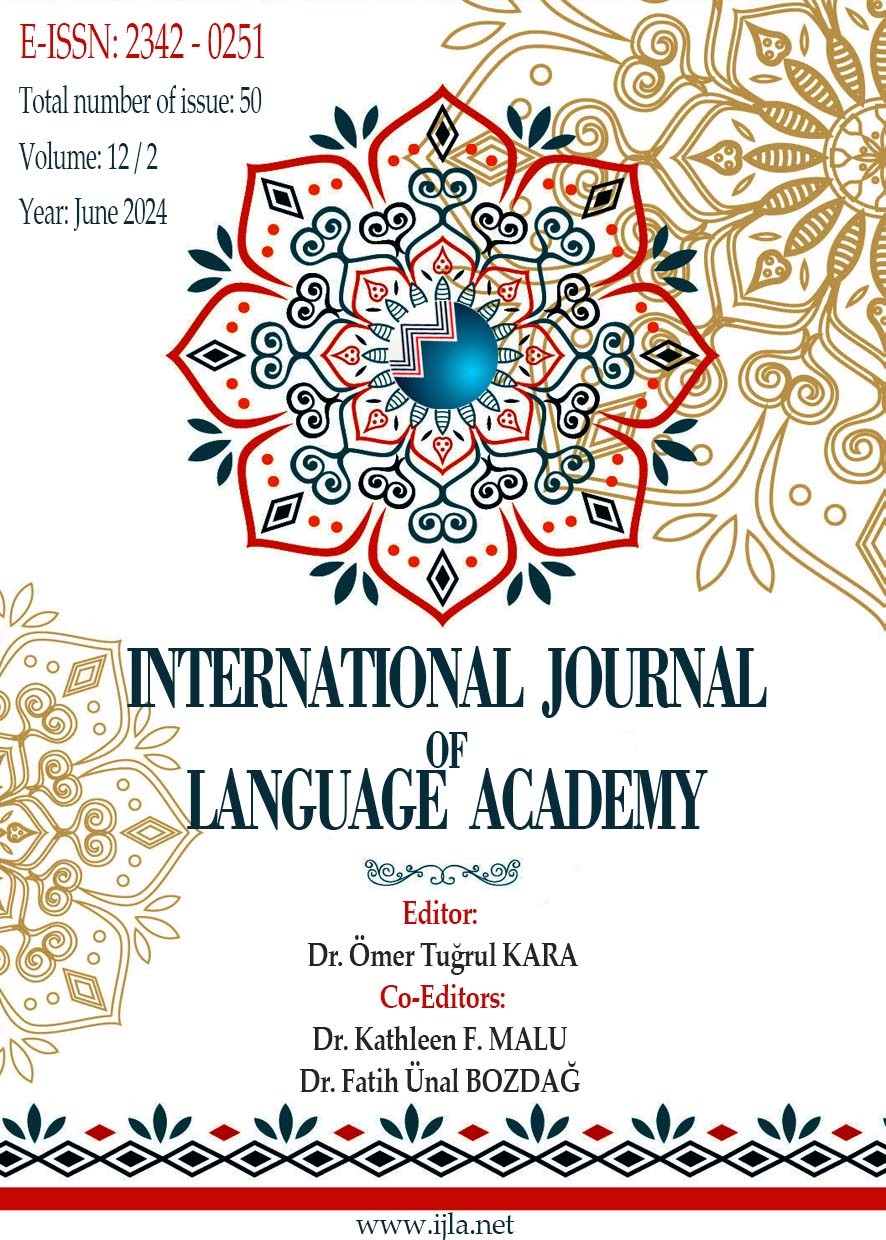Author :
Abstract
Bu araştırmada Ekolojik Sistemler Teorisi’nden hareketle geliştirilen ve özgün bir model olma niteliği taşıyan Ekolojik Etkileşimsel (EKET) Model’in eleştirel düşünme becerisine olan etkisini ortaya koymak amaçlanmıştır. Araştırma nicel araştırma yöntemlerinden ön test son test tek gruplu deneysel desene göre tasarlanmıştır. Araştırma örneklemini İstanbul’daki bir ortaokulda öğrenim gören 20, 7. sınıf öğrencisi oluşturmaktadır. Araştırmada öncelikle öğrencilerin eleştirel düşünme becerilerini ölçmek amacıyla ön test uygulanmış, ardından Ekolojik Etkileşimsel Model ve ona bağlı geliştirilen etkinlikler çerçevesinde dinleme ve okuma becerileri kullanılarak 8 haftalık deneysel süreç gerçekleştirilmiştir. Deneysel süreç sırasında araştırmacı gözlem kayıtları tutulmuş ve araştırma sonunda son test uygulanarak öğrencilerle yarı yapılandırılmış görüşmeler gerçekleştirilmiştir. Araştırmada elde edilen nicel veriler SPSS 22.0 paket programıyla analiz edilmiş, nitel veriler ise Nvivo 14 programı yardımıyla analiz edilerek tema ve kodlarına ayrıştırılmıştır. Araştırmadan elde edilen nicel verilerden hareketle deney grubunda yer alan öğrencilerin ön test son test genel puanları ile beceri alt boyutu puanlarında olumlu düzeyde anlamlı bir farklılık meydana geldiği tespit edilmiştir. Ekolojik Etkileşimsel Model’e göre tasarlanan Türkçe dersleri öğrencilerin genel olarak eleştirel düşünme becerisini olumlu yönde etkilerken aynı zamanda tümevarım, tümdengelim, varsayım kurma, gözlem ve sorgulama becerilerini de geliştirmiştir. Ayrıca öğrenciler Ekolojik Etkileşimsel Model’in yorumlama, empatik düşünme, sorgulama, farkındalık, problem çözme gibi pek çok açıdan farklı becerilerini geliştirdiğini ifade etmiştir. Araştırmada nitel ve nicel veriler birlikte yorumlanarak önerilerde bulunulmuştur.
Keywords
Abstract
In this study, it was aimed to reveal the effect of the Ecological Interactional Model (EKET), which was developed based on the Ecological Systems Theory and is a unique model, on critical thinking skills. The research was designed according to the pre-test and post-test one-group experimental design, one of the quantitative research methods. The research sample consisted of 20 7th-grade students studying in a middle school in Istanbul. In the study, firstly, a pre-test was applied to measure the critical thinking skills of the students, and then an 8-week experimental process was carried out using listening and reading skills within the framework of the Ecological Interactional Model and the activities developed based on it. During the experimental process, the researcher kept observation records, and at the end of the research, a post-test was applied, and semi-structured interviews were conducted with the students. The quantitative data obtained in the research were analyzed with the SPSS 22.0 package program, and the qualitative data were analyzed with the help of the Nvivo 14 program and decomposed into themes and codes. Based on the quantitative data obtained from the research, it was determined that there was a positive significant difference in the pre-test and post-test general scores and skill sub-dimension scores of the students in the experimental group. Turkish lessons designed according to the Ecological Interactional Model positively affected students' critical thinking skills in general while also improving their inductive, deductive, hypothesis-making, observation, and questioning skills. In addition, students stated that the Ecological Interactional Model improved their different skills in many aspects, such as interpretation, empathic thinking, questioning, awareness, and problem-solving. Qualitative and quantitative data were interpreted together, and recommendations were made.





